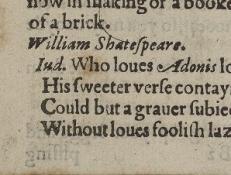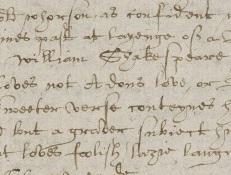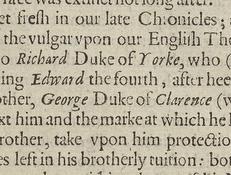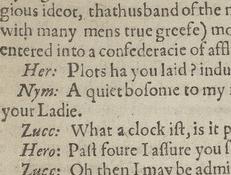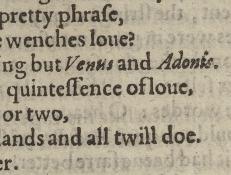The Folger Shakespeare Library has the world's largest collection of materials relating to Shakespeare and his works, from the 16th century to the present day, as well as a world-renowned collection of books, manuscripts, and prints from Renaissance Europe. The Library actively acquires new materials that build on the strengths of the collection. In the Folger’s state-of-the-art conservation lab, conservators prepare collection material for exhibition and for hands-on study by researchers.
To learn more about the Folger’s collection, please visit their website.
Terms of Use
Images that are under Folger copyright are licensed under a Creative Commons Attribution-ShareAlike 4.0 International License. This allows you to use our images without additional permission provided that you cite the Folger Shakespeare Library as the source and you license anything you create using the images under the same or equivalent license. For more information, including permissions beyond the scope of this license, see Permissions. The Folger waives permission fees for non-commercial publication by registered non-profits, including university presses, regardless of the license they use. For images copyrighted by an entity other than the Folger, please contact the copyright holder for permission information.

